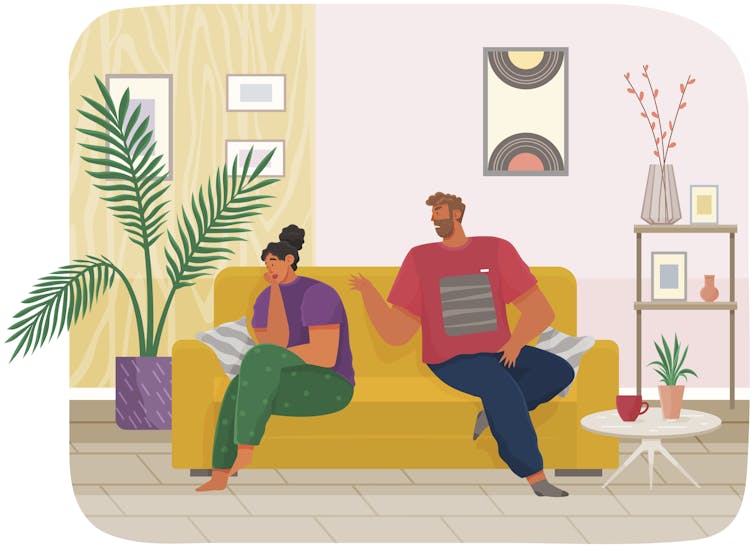Key Takeaways:
- Have you ever been mocked or abused for your views on COVID?
- But on the contrary, COVID and our response to it has added more fuel to an already raging fire, with people bitterly divided over issues such as masks, lockdowns and even vaccines.
- Having compassion and empathy are key to disagreeing with civility.
- When we’re in a heightened emotional state, our sense of personal threat is raised, meaning we may be more likely to see the disagreement as the latter.
- Cultivating intellectual humility not only makes it easier for us to agree to disagree on COVID (and other issues).
Have you ever been mocked or abused for your views on COVID? If so, you’re not alone. Anyone wishing to engage in an open dialogue surrounding the pandemic can often encounter a hostile climate, especially online.
This extreme polarisation around COVID reflects a broader “culture war” in society, where disagreements on political, cultural and social issues have spiralled into genuine animosity.
One might hope that a global crisis such as COVID would unite people. But on the contrary, COVID and our response to it has added more fuel to an already raging fire, with people bitterly divided over issues such as masks, lockdowns and even vaccines.
A minority of people hold extremist views about COVID that are unscientific, such as belief in conspiracy theories which deny the virus exists at all. Yet even among the majority who recognise the reality and severity of the pandemic, there remain many disparate views that centre instead on ethical dilemmas for which there is not necessarily one right answer.
For instance, while lockdowns and other restrictions may have been important in controlling the spread of the virus, there continues to be vigorous debate over the appropriate stringency of such measures, and whether or not the benefits have outweighed the costs. The lives saved by lockdowns must be weighed up against the damage they have caused to the economy and mental health (which in turn costs lives), resultant increases in child abuse and domestic violence.
These debates continue to play out in scientific communities, with different researchers reaching different conclusions and among the general public.
So what if you encounter somebody who has different views on COVID to you? Perhaps it’s a new colleague at work or university. Or maybe an uncomfortable topic comes up with somebody you’ve met in a social context. Here’s how to avoid hostility when you disagree with someone.
Cultivating compassion
Research has shown that compassion and empathy can promote conflict resolution. In the context of a disagreement, compassion and empathy allow us to better appreciate that others might form a different view from ourselves, based on their own personal circumstances.
Importantly, empathy and compassion are not necessarily static traits. They can be enhanced. For example, psychologists might use an intervention called perspective-taking with their clients to improve their ability to put themselves in someone else’s shoes. But this is a concept everyone can put into practice.
Imagine we meet someone who is either opposed to COVID restrictions that we are in favour of or in favour of COVID restrictions that we are opposed to. It may be that the person in favour of strict restrictions has lost a family member to COVID. Perhaps the person opposed to restrictions has children who have suffered due to school closures, or has an elderly relative they were prevented from visiting who subsequently died.
We must then ask ourselves, how would I feel if I were in this position? By just running this through for a minute in our heads we can improve our ability to navigate difficult conversations.

A further psychological safeguard against conflict is intellectual humility. Put simply, this means being open to the possibility that we might be wrong. This trait too can be cultivated.
If someone disagrees with us, we can take it as a simple difference of opinion or as a personal attack. When we’re in a heightened emotional state, our sense of personal threat is raised, meaning we may be more likely to see the disagreement as the latter. This leads to increased potential for conflict.
Ideally we want to work towards an open mindset, adopt a position that avoids judgement, and reduce the extent to which we feel personally threatened. One way of achieving this may be through relaxation or mindfulness exercises. These techniques have also been shown to boost our compassion and empathy.
Recent research has also shown that people with greater intellectual humility are more likely to factcheck potential COVID misinformation rather than taking claims at face value. Cultivating intellectual humility not only makes it easier for us to agree to disagree on COVID (and other issues). It can also help us to avoid becoming victims of COVID-related misinformation in the first instance.
Disagreeing without falling out
In the context of the response to COVID, some questions have ceased to be matters of science and instead become moral judgements. As the pandemic continues, many of us will need to navigate encounters with someone who comes down on the opposite side of an ethical dilemma to ourselves.
In these situations, it will pay to exercise compassion, empathy, and intellectual humility. These principles can be applied not just to disagreements over COVID, but other contentious issues too.
Being able to peacefully coexist with those with whom we disagree not only makes the world a nicer place, it is vital to the function of civil society. If we can learn to see those we disagree with not as immoral “others”, but as our fellow human beings, hopefully we will be better prepared for the next global challenge.





























